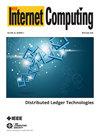适应在线和远程学习:考察美国大学生在 COVID-19 中的教育评估经历
IF 4.4
4区 计算机科学
Q1 COMPUTER SCIENCE, SOFTWARE ENGINEERING
引用次数: 0
摘要
我们在 2021 年 2 月至 6 月期间对 992 名美国大学生(平均年龄 = 22.36 岁)进行了一项调查,以研究 COVID-19 大流行对学业评估的影响。调查包括多项选择题和开放式问题,询问学生在大流行之前(2019 年秋季至 2020 年早春)和大流行影响期间(2020 年春末至 2021 年春季)的经历。虽然课堂评估形式变化甚微,但大流行期间的考试方法却大不相同。不计时考试和开卷考试变得更加普遍,而课堂监考则有所减少。即使在 2021 年春季,开卷考试、课外考试、在线监考或无人监考的考试仍然很普遍。因大流行病而改变长期学业计划的学生通过开放式回答表达了对教育经历的沮丧和对未来工作前景的担忧。了解学生对在线评估的体验可以为在线和远程高等教育环境中公平有效的评估的开发和管理提供有价值的见解。本文章由计算机程序翻译,如有差异,请以英文原文为准。
Adapting to Online and Remote Learning: Examining the Educational Assessment Experiences of U.S. College Students Amidst COVID-19
We administered a survey to examine the impact of the COVID-19 pandemic on academic assessment in a sample of 992 U.S. college students (mean age = 22.36 years) between February and June 2021. The survey included multiple-choice and open-ended questions asking about students’ experiences before (fall 2019 to early spring 2020) and during the pandemic-affected periods (late spring 2020 to spring 2021). While classroom assessment formats showed minimal changes, methods of exam administration differed significantly during the pandemic. Untimed and open-book exams became more prevalent, while in-class proctored exams decreased. Even in spring 2021, open-book, outside-of-class, and online proctored or unproctored exams remained common. Students who altered their long-term academic plans due to the pandemic expressed frustration with educational experiences and concerns about future job prospects via open-ended responses. Understanding students’ experiences with online assessments can provide valuable insights for the development and administration of fair and valid assessments in online and remote higher education settings.
求助全文
通过发布文献求助,成功后即可免费获取论文全文。
去求助
来源期刊

IEEE Internet Computing
工程技术-计算机:软件工程
CiteScore
7.60
自引率
0.00%
发文量
94
审稿时长
6-12 weeks
期刊介绍:
This magazine provides a journal-quality evaluation and review of Internet-based computer applications and enabling technologies. It also provides a source of information as well as a forum for both users and developers. The focus of the magazine is on Internet services using WWW, agents, and similar technologies. This does not include traditional software concerns such as object-oriented or structured programming, or Common Object Request Broker Architecture (CORBA) or Object Linking and Embedding (OLE) standards. The magazine may, however, treat the intersection of these software technologies with the Web or agents. For instance, the linking of ORBs and Web servers or the conversion of KQML messages to object requests are relevant technologies for this magazine. An article strictly about CORBA would not be. This magazine is not focused on intelligent systems. Techniques for encoding knowledge or breakthroughs in neural net technologies are outside its scope, as would be an article on the efficacy of a particular expert system. Internet Computing focuses on technologies and applications that allow practitioners to leverage off services to be found on the Internet.
 求助内容:
求助内容: 应助结果提醒方式:
应助结果提醒方式:


